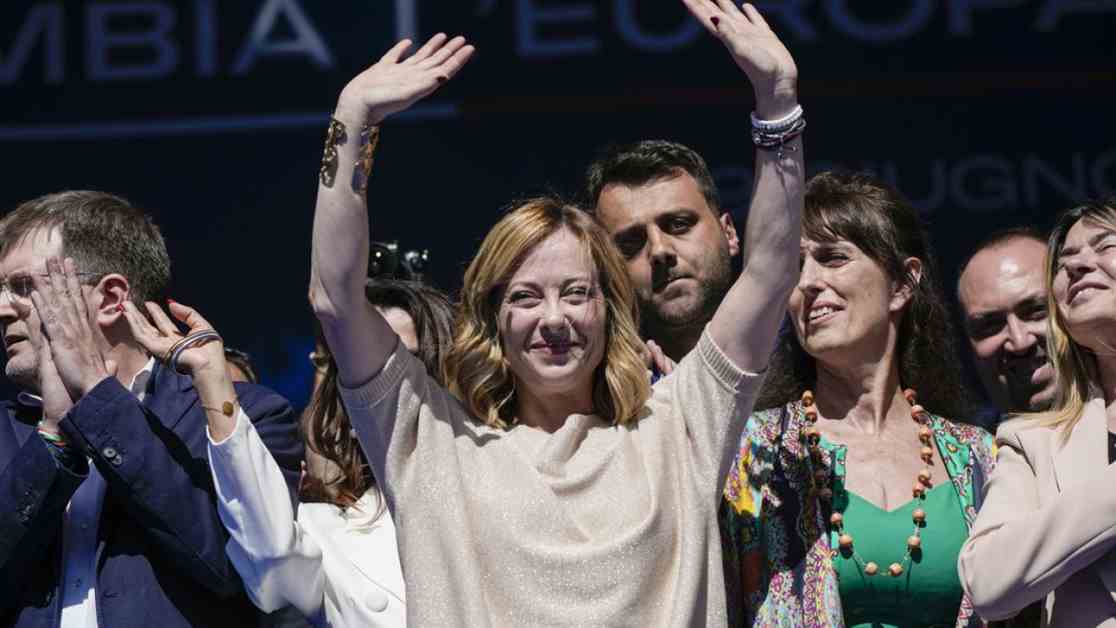Italy: Meloni Becomes Kingmaker as Fratelli d’Italia Secures Victory in Elections
Prime Minister Giorgia Meloni’s Fratelli d’Italia party has emerged victorious in the European elections in Italy, capturing a significant 28% of the votes. This win not only solidifies Meloni’s position domestically but also positions her as a key player in the European Parliament.
Giorgia Meloni’s far-right Fratelli d’Italia, also known as Brothers of Italy, clinched victory in Italy by securing over 28% of the votes, according to an exit poll released by the Italian RAI. The triumph not only provides a boost to Meloni’s standing within the country but also elevates her to one of the most influential figures in the European Union.
The centre-left opposition PD managed to garner 23% of the votes, while the populist Five Star Movement saw a decrease in support, receiving only 10% of the votes, down seven points from the 2019 election. Meanwhile, Meloni’s coalition partners, Forza Italia and the Lega party led by Eurosceptic Matteo Salvini, had a mixed performance.
The far-right Lega saw a steep decline, receiving about 8% of the votes compared to its 2019 result of 34.3%. The overwhelming support for Brothers of Italy compared to other coalition partners highlights the sensitivity of the Italian centre-right to changes in leadership.
Analysts have pointed out that tensions may arise within the governing coalition due to the disparity in party results. As Meloni’s influence grows, other parties may find themselves losing support the longer they remain in power with Fratelli d’Italia.
Meloni has been dubbed the kingmaker of the elections, with both European Commission president Ursula von der Leyen and France’s Marine Le Pen seeking her support. Von der Leyen required Meloni’s backing for her re-election as the president of the European Commission, emphasizing Meloni’s credibility as a partner in Brussels.
Meloni’s shift towards pro-EU and pro-Ukraine stances has garnered praise, marking a departure from her previous Eurosceptic views. This evolution has solidified her position as a key player in European politics, with her decisions likely to shape the future of the European Union.


















